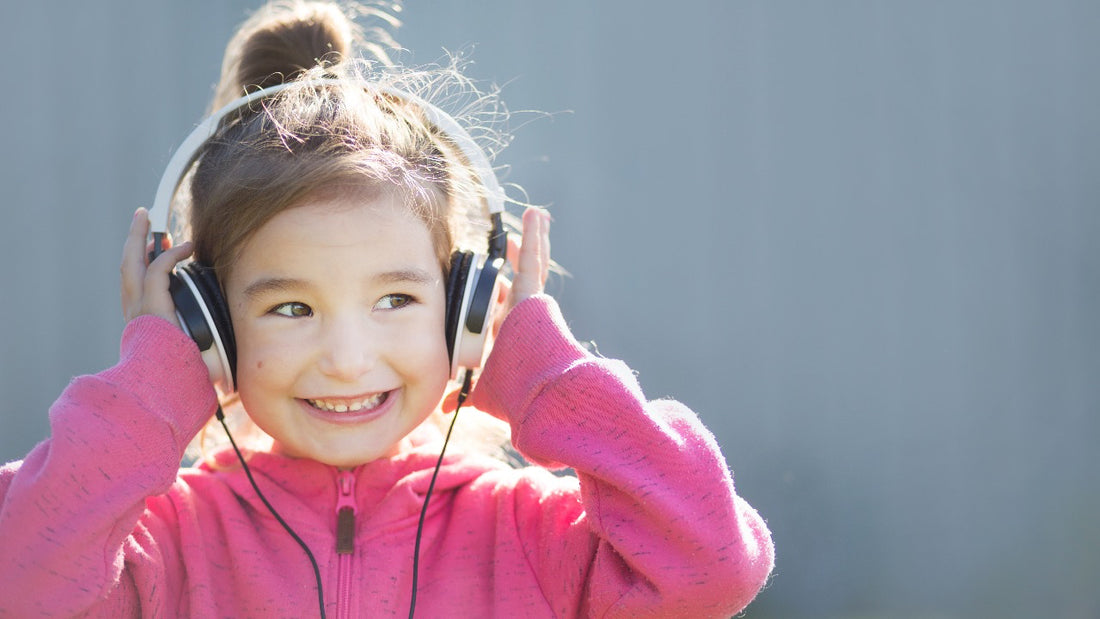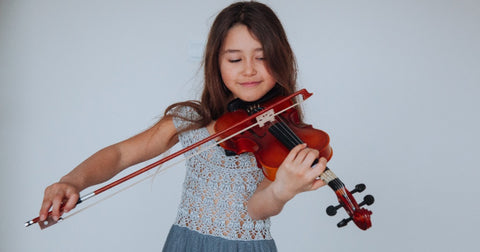
Why Music Matters for Kids: 10 Proven Benefits
Share
It is said that music is the universal language. It speaks to something innate in all of us, something profound and undeniable. There’s a kind of music for everyone, a rhythmic language that offers a window to the soul. Music can affect us in many ways: it can move us, inspire us, help us tap into inexpressible feelings deep within us. Children are no different in this regard and in point of fact, music can offer developmental benefits for a child as well.
Music has long been recognized as an important aspect of human culture, with the ability to evoke strong emotions and facilitate self-expression. But beyond its aesthetic and cultural value, research has shown that music can also have a number of positive effects on children's development and well-being.
Let’s explore the top 10 proven benefits of music for children:
- Improved cognitive skills and brain development - Studies have shown that exposure to music can stimulate the brain and enhance cognitive skills such as memory, language, and spatial-temporal skills. Music can also help to improve children's concentration and problem-solving abilities.

- Enhanced social and emotional development - Music can help children to develop their social skills and emotional intelligence. Participating in music activities with others can encourage teamwork and cooperation, while listening to music can also help children to understand and express their own emotions.

- Increased physical coordination and movement - Music can be a great way to get children moving and develop their physical coordination. Rhythm and movement activities, such as dancing and playing percussion instruments, can help to improve children's balance, coordination, and gross motor skills.
- Improved language skills - Music can have a positive impact on children's language development, helping them to learn new words, improve their pronunciation, and increase their vocabulary. Singing songs and playing games with rhymes can also help children to develop their phonological awareness, an important precursor to reading.

- Enhanced creativity and self-expression - Music can be a powerful tool for self-expression and creativity, allowing children to explore their own feelings and emotions through sound. Participating in music activities can also help children to develop their imagination and creativity, as they learn to create and arrange sounds in new and interesting ways.
- Improved academic performance - Studies have shown that students who participate in music programs tend to have higher grades and test scores, particularly in math and language arts. Music can also help to improve children's focus and attention span, which can be beneficial in the classroom.

- Stress reduction and relaxation - Music can be a powerful tool for relaxation and stress management, helping children to cope with anxiety and negative emotions. Listening to music can also help to lower blood pressure and heart rate, making it a helpful tool for calming down and unwinding.
- Increased self-esteem and confidence - Participating in music activities can help children to develop their sense of accomplishment and boost their self-esteem. Learning to play an instrument or perform in front of others can also help children to develop their self-confidence and feel more comfortable in social situations.

- Improved sleep quality - Music has been shown to have a calming effect on the mind and body, making it a helpful tool for promoting better sleep. Listening to soothing music before bedtime can help children to relax and fall asleep more easily, leading to improved sleep quality.
- Promotes cultural awareness and appreciation - Music can be a great way for children to learn about different cultures and traditions. Listening to music from different parts of the world can help children to develop an appreciation for diversity and broaden their cultural horizons.
In conclusion, the benefits of music for children are numerous and varied. From improving cognitive skills and brain development, to enhancing creativity and self-expression, music can have a positive impact on children's development and well-being. So next time you're looking for a fun and educational activity for your child, consider incorporating music into their routine. Not only will they have a great time, but they'll also be reaping the numerous benefits that music has to offer.
Original content © 2022 storybooksong. All rights reserved.
Not to be reprinted without express written permission. Terms and Conditions.
